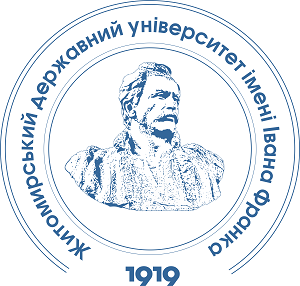PARADIGMATIC DIVISION OF PSYCHOLOGICAL THEORY: RESULTS AND PROSPECTS
DOI:
https://doi.org/10.32782/psy-2023-2-8Keywords:
paradigm, paradigmatic dichotomy, natural paradigm, natural approach, positive psychologyAbstract
The paradigmatic dichotomy is a fundamental methodological problem of psychological science and has accompanied it throughout its history. The roots of the dichotomy lie in ancient philosophy, but despite the archaic nature of this problem, it is still relevant to psychologists today. The history of psychology is a process of struggle between antagonistically opposed scientific schools, with their own subject matter, terminology and methodological approaches (structuralism and functionalism; later psychoanalysis and behaviorism; then classical cognitive science and humanistic psychology; now connectivism (neocognitive science) and positive psychology, neuropsychoanalysis and neo-Freudianism; dialectical pairs replace each other on a new round of historical development, but the essence of the still insurmountable conflict remains the same). It is a struggle between the naturalistic approach (studying the lower structures of mental activity by objective natural methods) and the humanistic approach (studying the higher structures by mixed, qualitative and quantitative methods) in psychology. However, in the modern world, leading psychologists have already made effective attempts to synthesize the paradigms to which our article is devoted. The first serious steps toward overcoming the paradigm split have already been taken. The article analyzes the historical trends in the development of psychology, taking into account the vector of the Western understanding of the paradigm split as a dialectical relationship between the «mentalistic» and «behavioristic» directions. The author also analyzes the current state of development of both approaches, as well as integrative approaches to combining the methodology and research areas of different schools, such as affective neuroscience, evidence-based positive psychology, modern cognitive psychology, and neuropsychoanalysis. The author analyzes the points of contact and vectors of divergence of paradigmatic approaches on the basis of the analysis of research by their contemporary representatives. The author substantiates the right of the humanistic paradigm to exist and to be treated on a parity basis by natural psychologists. Proposals are made to achieve a «golden mean» in the choice of paradigmatic methodology. Forecasts of the development of the paradigm split are made.
References
Бакаленко О. А., Дашенкова Н. М. Когнітивні дослідження емоційно-афективної сфери: досягнення та проблеми. Вісник Харківського національного педагогічного університету імені Г. С. Сковороди. Серія «Психологія». 2012. Вип. 43(1). С. 13–17.
Коханова О. П. Історія психології: від античності до початку XX століття : навч. посібник / Авт-уклад. О. П. Коханова. Київ : НВП «Інтерсервіс», 2016. 235 с.
Ларін Д. І. Характеристика історико-психологічного процесу в контексті перебігу «відкритої психологічної кризи» у поглядах С. Л. Рубінштейна. Психологічний часопис. 2017. № 3. С. 82–91.
Мазяр О. В. Особистісний контрапункт на перехресті парадигм. Актуальні проблеми психології: збірник наукових праць Інституту психології імені Г. С. Костюка НАПН України. Том VI: психологія обдарованості. Випуск 16. Київ-Житомир : Вид-во ЖДУ ім. І. Франка, 2019. С. 165–172.
Основи психолого-управлінського консультування : навчальний посібник / Л. М. Карамушка, Н. Л. Коломінський, М. В. Войтович та ін.; за наук. ред. Л. М. Карамушки. Київ : МАУП, 2002. 136 с.
Arlson R. A. Mentalism, information, and consciousness. Behavioral and Brain Sciences. 2002. Vol. 25(3). Р. 333. DOI:10.1017/S0140525X02250062.
Asgharipoor N., Asgharnejad A. F., Arshadi H., Sahebi A. A. Comparative Study on the Effectiveness of Positive Psychotherapy and Group Cognitive-Behavioral Therapy for the Patients Suffering From Major Depressive Disorder, Iran. Journal of Psychiatry and Behavioral Sciences. 2012. Vol. 6 (2). Р. 33–41. Режим доступу: https://www.ncbi.nlm.nih.gov/pmc/articles/PMC3940016/.
Bechtel W. Contemporary Connectionism: Are the New Parallel Distributed Processing Models Cognitive or Associationist? Behaviorism. 1985. Vol. 13. Р. 53–61.
Bechtel W., Abrahamsen A., Graham G. The Life of Cognitive Science. 1998.
Bechtel W., Graham G. (eds.). A Companion to Cognitive Science. Oxford: Blackwell, 2017. Р. 1–104.
Bunge M., Ardila R. Brainless psychology: mentalism and behaviorism. Philosophy of psychology. New York : Springer-Verlag. 1987. Р. 87–135.
Carr E. G. Behavior analysis is not ultimately about behavior. The Behavior Analyst. 1993. Vol. 16 (1). Р. 47–49.
Coltheart M. What has Functional Neuroimaging told us about the Mind (so far)? (Position Paper Presented to the European Cognitive Neuropsychology Workshop, Bressanone, 2005). Cortex. 2006. Vol. 42 (3). Р. 323–331.
Dehaene S. Consciousness and the brain: deciphering how the brain codes our thoughts. New York : Viking, 2014. 352 р.
Downes S. New technology supporting informal learning. Journal of Emerging Technologies in Web Intelligence. 2010. Vol. 2(1). Р. 27–33.
Fry H., Kerridge S., Marshall S. Understanding Student Learning. Routledge Falmer. 2003.
Giuseppe D. L. Philosophical and empirical approaches to psychology: mentalism vs. antimentalism. Lanham, MD : Lexington Books, 2016. 194 р.
Harlow J. Recovery from the passage of an iron bar through the head. Massachusetts Med. Soc. Publ., 1868. Vol. 2. Р. 329–347.
Hocutt M. Behaviorism as opposition to Cartesianism. New York : Prentice-Hall, 1996. https://doi.org/10.4135/9781446279168.
Holmqvist G., Lundqvist C. Is there evidence for the use of art therapy in treatment of psychosomatic disorders, eating disorders and crisis? A comparative study of two different systems for evaluation. Scandinavian Journal of Psychology. 2012. Vol. 53(1). Р. 47–53. URL: https://pubmed.ncbi.nlm.nih.gov/22023072/.
Jacobs A., Literacy M. Cognitive Psychology of International. Encyclopedia of the Social & Behavioral Sciences. 2001. Р. 8971–8975.
John A. G. Trafficking in cognition: applying cognitive psychology to driving. Transportation Research Part F: Traffic Psychology and Behaviour. 2002. Vol. 5(4). P. 235–248.
Mahoney M. J. Cognition and Behavior Modification. Cambridge, MA : Ballinger, 1974. 351 р.
Mosri D. F. Clinical Applications of Neuropsychoanalysis: Hypotheses Toward an Integrative Model, Front Psychol, 2021. URL: https://www.ncbi.nlm.nih.gov/pmc/articles/PMC8458959/.
O'Donohue W. T., Ferguson K. E. The psychology of B. F. Skinner. Thousand Oaks, CA: SAGE Publications, 2001. 296 р. https://doi.org/10.4135/9781452229409.
Paivio A. Neomentalism. Canadian Journal of Psychology. 1975. Vol. 29 (4). Р. 263–291.
Pinker S. How the Mind Works. tr. / Come Funziona la Mente. Milan : Mondadori, 2000.
Preston B. Behaviorism and mentalism: Is there a third alternative? Synthese. 1994. Vol. 100 (2). Р. 167–196.
Regev D., Cohen-Yatziv L. Effectiveness of Art Therapy With Adult Clients in 2018 – What Progress Has Been Made? Frontiers in Psychology. 2018. URL: https://www.researchgate.net/publication/327292859_Effectiveness_of_Art_Therapy_With_Adult_Clients_in_2018-What_Progress_Has_Been_Made
Rey G. Contemporary Philosophy of Mind: A Contentiously Classical Approach. Oxford : Blackwell, 1997. 380 р.
Schnaitter R. A coordination of differences: behaviorism, mentalism and the foundation of psychology / Knapp T. J., Robertson L. C. (eds.). Approaches to cognition: contrasts and controversies. Hillsdale, New York : Lawrence Erlbaum Associates, 1986. Р. 291–315.
Siemens G. Connectivism: A Learning Theory for the Digital Age. International Journal of Instructional Technology and Distance Learning. 2005. Vol. 2. Р. 1–9.
Siemens G. Connectivism: A learning theory for the digital age. International Journal of Instructional Technology and Distance Learning. 2005. Vol. 2(1). Р. 3–10.
Siemens G. Knowing Knowledge. Vancouver : Lulu Press, 2006. 176 р.
Smith T. L. Behavior and its causes: philosophical foundations of operant psychology. Studies in cognitive systems. Vol. 16. Dordrecht; Boston : Kluwer Academic Publishers, 1994. 282 р.
Sober E. Mentalism and behaviorism in comparative psychology / Rajecki D. W. (ed.). Comparing behavior: studying man studying animals. Hillsdale, New York : Lawrence Erlbaum Associates, 1983. Р. 113–142.
Solms M. Dreaming and REM sleep are controlled by different brain mechanisms. Behavioral and Brain Sciences, 2000. Vol. 23. Р. 843–850.
Solms M. L., Fonagy P., Hopkins C. J. Free Energy in Psychoanalysis and Neuroscience, Frontiers in Psychology, Frontiers Research Topics, 2020. 186 р.
Solso R. L. Cognitive psychology. Boston : Publisher Allyn and Bacon, 2018. 589 p.






